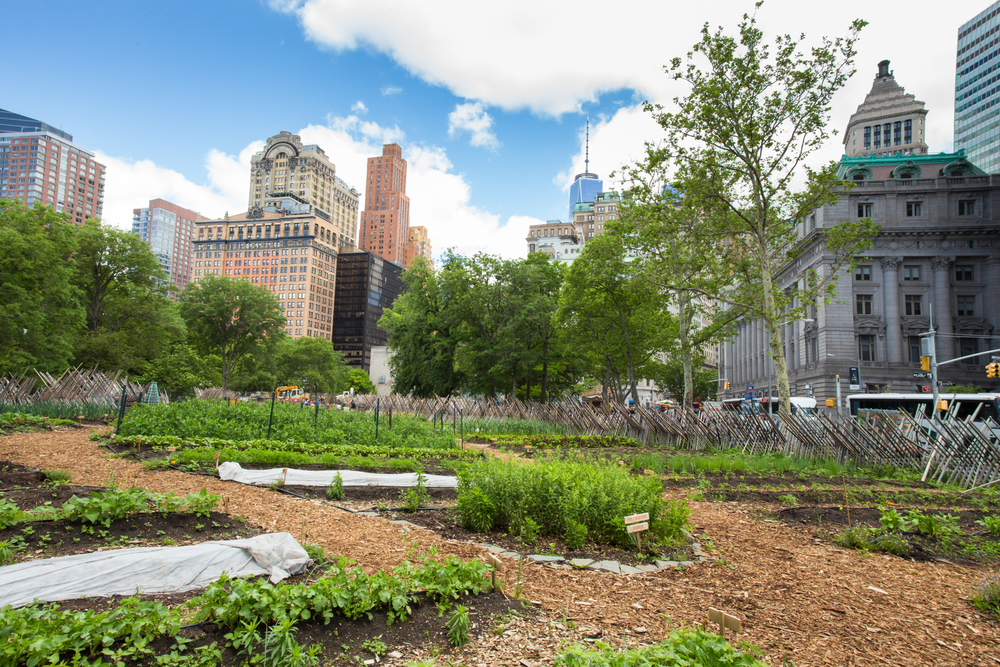
Urban farming is an incentive for urban investment and most importantly provides opportunities for local food security. Image source: Shutterstock (littleny #197889203).
In New York City urban farming and roof-top farming is no novelty. But since changes in zoning law have been considered and implemented by the city, urban farming has emerged from a niche development to a larg-scale phenomenon.
As Nicole Baum, the spokeswoman for Gotham Greens points out: “These large-scale greenhouses are advanced and expensive, but more and more consumers and businesses are supporting them”, meaning that also large-scale investments are needed to foster local production of foodstuff. As rooftop greenhouses are attractive, also landlords consider them as a potential amenity and opportunity for profit.
As costs being the largest obstacles for roof-top farming, many of the initial start-ups had to be financially supported to be profitable. An analysis by Columbia University states that there were more than 5,701 private and public roofs in 2013 that, combined, were capable of holding 3,000 acres of rooftop farms – which is nearly three and a half times the size of Central Park .
amNewYorkWhy not share this article?







